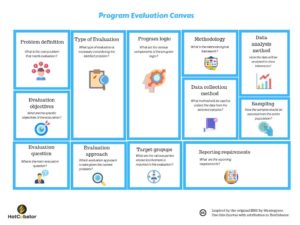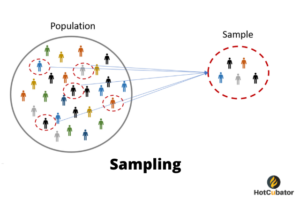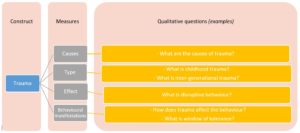
Novice researchers often get stuck with the question, whether to select qualitative and quantitative research? Unfortunately, there is no easy answer to this question. In fact it is not possible to explicitly state, which research methodology is ideal without knowing what the research question is and what is the epistemological belief of the researcher.
When you are thinking about qualitative or quantitative, you are referring to a ‘Research Methodology’. From a very theoretical point of view the research methodology determines how the researcher goes about investigating that which is to be known and the techniques used to acquire the data required for his/her research. The following discussion explains the difference between – Quantitative and Qualitative research methodology.
What is quantitative methodology
The quantitative approach, is deductive and theory-driven which manifests the hypothesised relationships between certain variables. It observes specific phenomena based on specific theories of reference. In the quantitative approach, hypotheses are deductively derived from the theory and then falsified through empirical investigation. Quantitative techniques can measure specific characteristics through structured data collection procedures from a large representative sample so that the results can be projected to the entire population.
One advantage of this research approach is to provide a concise answer to the research question through the acquisition and analysis of information that can be aggregated from the survey data. Findings from the quantitative methodology can be generalised, where a certain context only is relevant to the topic of study. However, the quantitative approach has often been criticised for not considering the subjective aspect of a research phenomenon. Social science researchers, therefore, have debated the use of quantitative methodology to explore the phenomenon which is inherently social. Proponents of qualitative methodology argue that rich insights into our complex world are lost if realities are described entirely according to a series of law-like generalizations.
What is qualitative methodology
The qualitative methodology is inductive and is driven by the constructivist paradigm which asserts that, reality resides in the minds of the individuals holding them. The inductive approach allows the research findings to emerge from the frequent and dominant themes inherent in raw data without any restraints imposed by structured methodologies. In qualitative methodology, insights are mainly gathered through collection, organisation and interpretation of textual materials derived from talks, interviews or observation. Since the qualitative method is capable of revealing the rich symbolic world that underlies motivations, needs, desires and choices, it is deemed to be more suitable for studying social phenomena.
It allows the researcher to uncover and conceptualize those phenomena about which little are known or to expand on that which is known. Qualitative research builds on the limitations of quantitative research which produces scientific results based on structured calculative examination and statistical data. Some researcher believe that scientific studies do not produce absolute truths which can be uncritically adopted or accepted. The strength of qualitative research is that it is more naturalistic and interpretative. This approach provides intricate details of phenomena which are difficult to explore with quantitative methods.
Difference between qualitative and quantitative methodology
The following table represents the differences of the two different methodologies and the relevant dimensions of the paradigms.
Quantitative methodology | Qualitative methodology | |
| Epistemology | Reality can be studied, captured and understood | Researcher is part of the research process |
| Nature | Deductive | Inductive |
| Purpose | Generalizability | Contextualization |
| Researcher role | Objective and remote | Researcher and the researched interact |
| Methodology | Hypothetico-deductive | Inductive/interpretive |
| Data collection | Generates numerical data to represent the social environment | Verbal data and observations to represent the social environment. |
| Data analysis | Statistical and summarization | Subjective and interpretive |
Source: Adapted from: Creswell and Clark (2017); Denzin and Lincoln(1998).
References:
Carter, S. M., & Little, M. (2007). Justifying knowledge, justifying method, taking action: Epistemologies, methodologies, and methods in qualitative research. Qualitative Health Research, 17(10), 1316-1328.
Cavana, R. Y., Delahaye, B. L., & Sekaran, U. (2001). Applied business research. Qualitative and Quantitative Methods.
Creswell, J. W., & Clark, V. L. P. (2017). Designing and conducting mixed methods research. Sage publications.
Denzin, N. K., & Lincoln, Y. S. (1998). Strategies of qualitative inquiry. California: Sage Publications.
Denzin, N. K. (2010). Moments, mixed methods, and paradigm dialogs. Qualitative inquiry, 16(6), 419-427.
Flick, U. (2004). An introduction to qualitative research (4th ed.).
Gelo, O., Braakmann, D., & Benetka, G. (2008). Quantitative and Qualitative Research: Beyond the Debate. Integrative Psychological and Behavioral Science, 42(3), 266-290. doi: 10.1007/s12124-008-9078-3
Guba, E. G., & Lincoln, Y. S. (1994). Competing paradigms in qualitative research. Handbook of qualitative research, 2(163-194), 105.
Marshall, C., & Rossman, B. G. (1999). Designing Qualitative Research (3rd ed.): Sage Publication.








